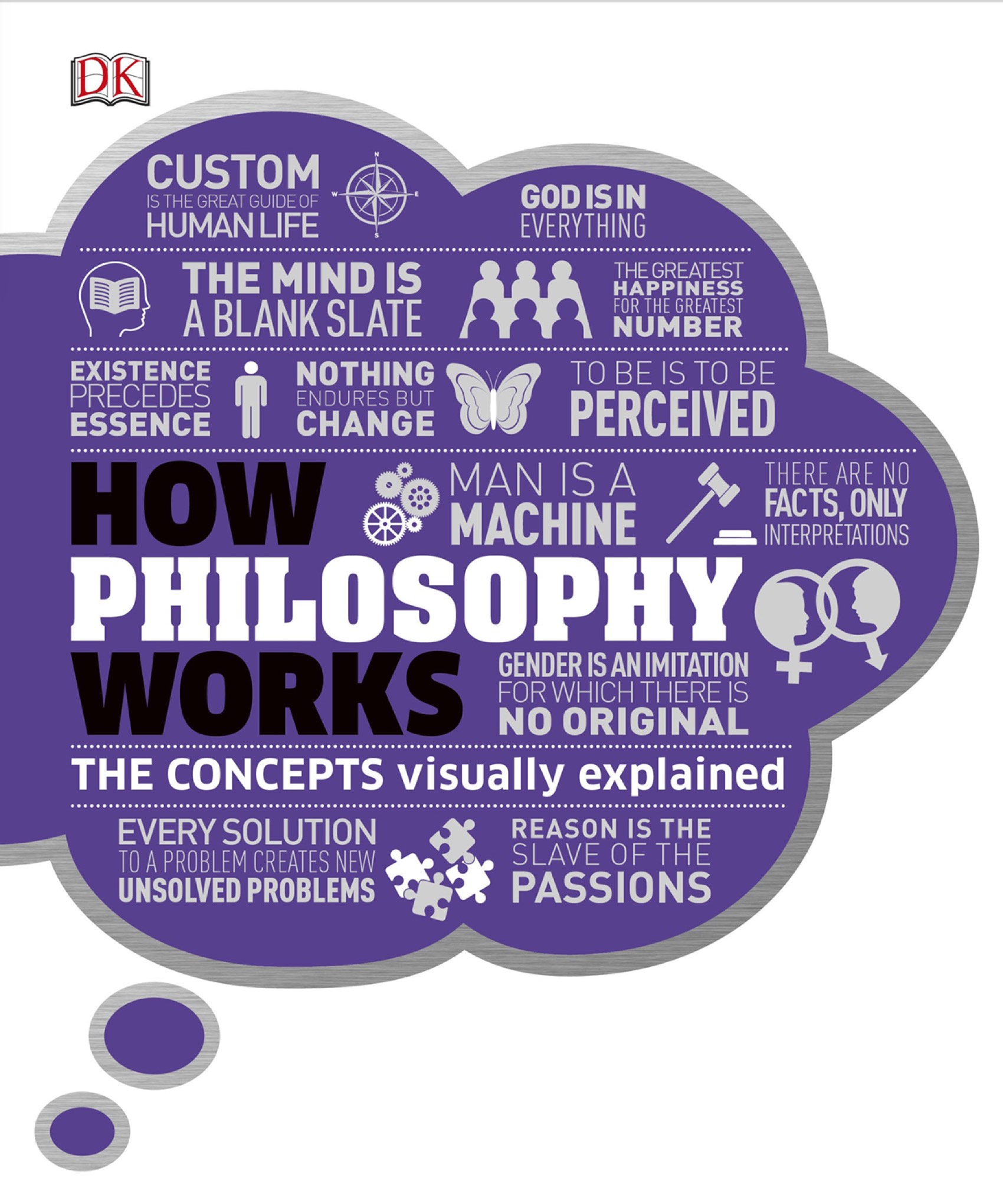DK HOW PHILOSOPHY WORKS
Summary of How Philosophy Works (DK Publishing)
How Philosophy Works is a visually engaging introduction to philosophy, providing a structured overview of fundamental philosophical concepts, thinkers, and movements throughout history. The book simplifies complex ideas using diagrams, summaries, and explanations, making philosophy more accessible to a general audience.
Key Themes and Content
1. Foundations of Philosophy
• Explores metaphysics (the nature of reality), epistemology (the study of knowledge), and ontology (the study of existence).
• Covers early Greek thinkers like Thales, Parmenides, and Heraclitus, who pondered the nature of change, existence, and the elements.
2. Major Philosophical Schools
• Analytic Philosophy: Focuses on logic, language, and scientific reasoning. Includes thinkers like Bertrand Russell, Wittgenstein, and Karl Popper.
• Continental Philosophy: Explores phenomenology, existentialism, and postmodernism, featuring Nietzsche, Foucault, and Derrida.
3. Philosophy of Mind
• Discusses concepts of consciousness, identity, and the relationship between mind and body.
• Covers theories like dualism (Descartes), materialism, and functionalism.
4. Ethics and Morality
• Examines virtue ethics (Aristotle), utilitarianism (Bentham & Mill), deontology (Kant), and existentialist ethics (Sartre & Kierkegaard).
• Addresses modern ethical dilemmas like animal rights, euthanasia, and cloning.
5. Political Philosophy
• Analyzes different government systems, democracy, and human rights.
• Discusses social contract theories (Hobbes, Locke, Rousseau), Marxist critiques of capitalism, and feminist perspectives on patriarchy.
6. Logic and Argumentation
• Introduces principles of logic, argument structures, and common fallacies.
• Covers deductive vs. inductive reasoning, and methods for evaluating philosophical arguments.
Conclusion
How Philosophy Works serves as an accessible guide to philosophical thought, providing a structured and visual approach to understanding complex ideas. It helps readers engage critically with philosophical debates and explore the connections between philosophy and everyday life.
